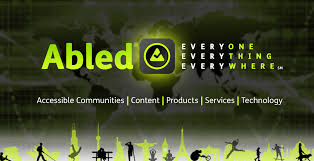Education

Education is the process of facilitating learning, or the acquisition of knowledge, skills, values, beliefs, and habits. Educational methods include storytelling, discussion, teaching, training, and directed research. Education frequently takes place under the guidance of educators, but learners may also educate themselves. Education can take place in formal or informal settings and any experience that has a formative effect on the way one thinks, feels, or acts may be considered educational. The methodology of teaching is called pedagogy. Education is commonly divided formally into such stages as preschool or kindergarten, primary school, secondary school and then college, university, or apprenticeship. A right to education has been recognized by some governments and the United Nations. In most regions, education is compulsory up to a certain age.
Vocational Training
Vocational training is used to prepare for a certain trade or craft. Decades ago, it used to refer solely to such fields are welding and automotive service, but today it can range from hand trades to retail to tourism management. Vocational training is education only in the type of trade a person wants to pursue, forgoing traditional academics. Vocational training programs allow students to get ready for specific careers. Some high schools provide vocational training; at the postsecondary level, prospective students can consider standalone courses, certificate/diploma-granting programs, associate's degree programs and apprenticeships.


Differently Abled
Insight is a project jointly initiated by the Social Justice Department, Government of Kerala and Kerala Federation of the Blind to bring the benefits of Information and Communication Technology to people with disabilities. Insight commenced its activities in May 2007 with the setting up of a resource centre for the visually challenged in Vellayambalam, Thiruvananthapuram. It caters to the ICT needs of the visually challenged by providing ICT training and developing assistive technology for them. It also imparts computer training and develops devices to aid autistic children.
Women's Empowerment
Women's empowerment has become a significant topic of discussion in development and economics. It can also point to approaches regarding other trivialized genders in a particular political or social context. Women's economic empowerment refers to the ability for women to enjoy their rights to control and benefit from resources, assets, income and their own time, as well as the ability to manage risk and improve their economic status and wellbeing. While often interchangeably used, the more comprehensive concept of gender empowerment refers to people of any gender, stressing the distinction between biological sex and gender as a role. It thereby also refers to other marginalized genders in a particular political or social context.

.
Culture

Culture is the social behavior and norms found in human societies. Culture is a central concept in anthropology, encompassing the range of phenomena that are transmitted through social learning in human societies.
Some aspects of human behavior, such as language, social practices such as kinship and marriage, expressive forms such as art, music, dance, ritual, and religion, and technologies such as tool usage, cooking, shelter, and clothing are said to be cultural universals, found in all human societies.
The concept of material culture covers the physical expressions of culture, such as technology, architecture and art, whereas the immaterial aspects of culture such as principles of social organization (including practices of political organization and social institutions), mythology, philosophy, literature (both written and oral), and science comprise the intangible cultural heritage of a society.
Environment
The natural environment encompasses all living and non-living things occurring naturally, meaning in this case not artificial. The term is most often applied to the Earth or some parts of Earth. This environment encompasses the interaction of all living species, climate, weather, and natural resources that affect human survival and economic activity. The concept of the natural environment can be distinguished as components Environment is everything that is around. It can be living or non-living things. It includes physical, chemical and other natural forces. Living things live in their environment. They constantly interact with it and change in response to conditions in their environment. In the environment there are interactions between animals, plants, soil, water, and other living and non-living things. Since everything is part of the environment of something else, the word 'environment' is used to talk about many things. People in different fields of knowledge (like history, geography or biology) use the word environment differently. Electromagnetic environment is radio waves and other electromagnetic radiation and magnetic fields. The galactic environment refers to conditions between the stars. In psychology and medicine a person's environment is the people, physical things, places, and events that the person lives with. The environment affects the growth and development of the person. It affects the person's behavior, body, mind and heart.

Rural Development

Rural development is the process of improving the quality of life and economic well-being of people living in rural areas, often relatively isolated and sparsely populated areas. Rural development has traditionally centered on the exploitation of land-intensive natural resources such as agriculture and forestry. However, changes in global production networks and increased urbanization have changed the character of rural areas. Increasingly tourism, niche manufacturers, and recreation have replaced resource extraction and agriculture as dominant economic drivers. The need for rural communities to approach development from a wider perspective has created more focus on a broad range of development goals rather than merely creating incentive for agricultural or resource based businesses. Education, entrepreneurship, physical infrastructure, and social infrastructure all play an important role in developing rural regions.Rural development is also characterized by its emphasis on locally produced economic development strategies. In contrast to urban regions, which have many similarities, rural areas are highly distinctive from one another. For this reason there are a large variety of rural development approaches used globally.